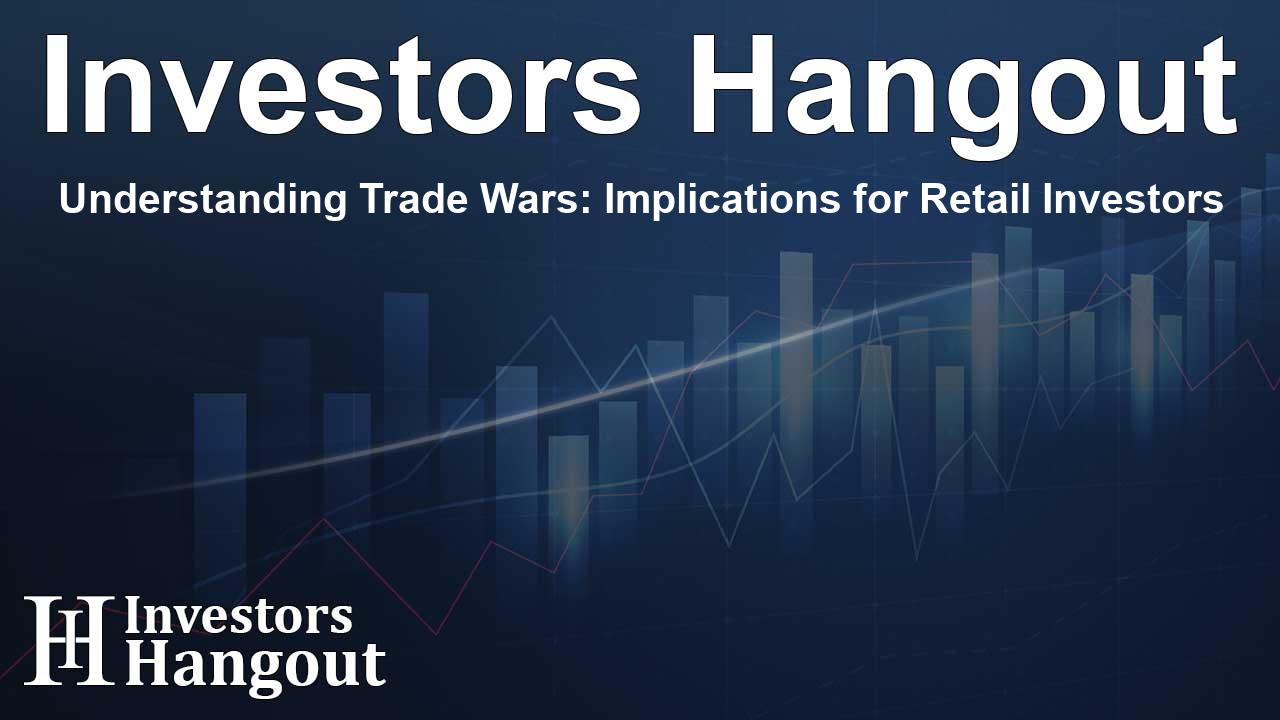Understanding Trade Wars: Implications for Retail Investors

Understanding Trade Wars and Their Consequences
Trade wars have been a topic of significant discussion, particularly in the context of U.S. relations with Canada and China. Global dynamics are shifting, bringing about economic changes that retail investors need to understand. As tensions fluctuate, we need to consider what the future holds for trade relationships and the stock markets.
Current Political Climate and Its Implications
Discussions around tariffs have intensified with recent political stances from leaders in North America. Increasing tariffs can serve as a tool for leaders to negotiate trade policies, but they can also lead to retaliatory measures. Canada’s reaction to U.S. tariffs has included substantial counter-tariffs worth billions. This tug-of-war raises questions about stability in trading relationships and markets.
The Role of Major Economies
The U.S. economy represents a significant portion of global trade, showcasing the immense weight it carries in the marketplace. The stock market dynamics reflect a nuanced relationship with various countries, particularly Canada and China. With the U.S. representing over 70% of market capitalizations globally, it stresses the importance of understanding these economic ties.
Trade Relations with China
China’s trading strategy has shifted in recent years, focusing on high-tech growth rather than just cheap manufacturing. Simultaneously, China's large holdings of U.S. Treasury securities must be acknowledged. The implications of both nations’ economic interactions are complex and can cause ripples in global markets.
Market Reaction and Historical Context
Historically, the stock market tends to react with caution during times of trade uncertainty. Analysts observe that the market's response to trade tension often remains subdued. Events from previous years, such as those during Trump’s first term, demonstrate how market behaviors can be swayed by political tensions without drastic immediate impacts.
US Market Stability Amid Trade Tensions
Despite potential for volatility, the resilience of the U.S. markets shines through the uncertainty of trade wars. Entities like the Eurozone have shown little response to aggressive U.S. tariff policies, portraying the U.S. dominance in global economics. Investors in equity markets need to remain vigilant as these dynamics unfold.
Potential Consequences for Industries
Should trade disputes escalate, certain industries might feel the heat. Sectors such as automakers and fuel exporters may find themselves at the forefront of tariff wars. Given their strong ties with Canada and Mexico, these industries will need to strategize for potential supply chain disruptions or financial impacts due to retaliatory tariffs.
Investment Strategies During Trade Wars
Having insights into potential retaliatory measures could help investors safeguard their positions. During previous trade disputes, sectors like utilities and real estate proved resilient. Focusing on these sectors could offer stability amidst a fluctuating landscape, while staying informed on international dynamics will be crucial for making smart investment choices.
Final Thoughts on Trade Wars
As we navigate this complex environment, it’s important for retail investors to stay informed about economic relations and potential impacts on their portfolios. The upcoming tariff strategies and responses from foreign nations could shape the future of investing strategies. Understanding these factors will allow for better preparation as the economic landscape evolves.
Frequently Asked Questions
What are trade wars?
Trade wars occur when countries impose tariffs or other barriers on each other's goods to protect domestic industries and influence economic policies.
How do trade wars affect investors?
Investors may experience volatility in the stock market, particularly in sectors directly impacted by trade policies, which can lead to strategic adjustments in their portfolios.
Which sectors are most impacted by trade wars?
Industries such as automotive, agriculture, and technology often face significant challenges amidst trade disputes due to their international supply chain dependencies.
How can investors protect themselves during trade wars?
Diversifying investments and focusing on sectors that traditionally perform well during economic uncertainty can help shield against potential losses.
Are trade wars likely to escalate further?
The likelihood of escalating trade wars depends on political dynamics, economic needs, and the strategies employed by involved nations. Continuous adjustments can shift the landscape significantly.
About The Author
Contact Caleb Price privately here. Or send an email with ATTN: Caleb Price as the subject to contact@investorshangout.com.
About Investors Hangout
Investors Hangout is a leading online stock forum for financial discussion and learning, offering a wide range of free tools and resources. It draws in traders of all levels, who exchange market knowledge, investigate trading tactics, and keep an eye on industry developments in real time. Featuring financial articles, stock message boards, quotes, charts, company profiles, and live news updates. Through cooperative learning and a wealth of informational resources, it helps users from novices creating their first portfolios to experts honing their techniques. Join Investors Hangout today: https://investorshangout.com/
The content of this article is based on factual, publicly available information and does not represent legal, financial, or investment advice. Investors Hangout does not offer financial advice, and the author is not a licensed financial advisor. Consult a qualified advisor before making any financial or investment decisions based on this article. This article should not be considered advice to purchase, sell, or hold any securities or other investments. If any of the material provided here is inaccurate, please contact us for corrections.
